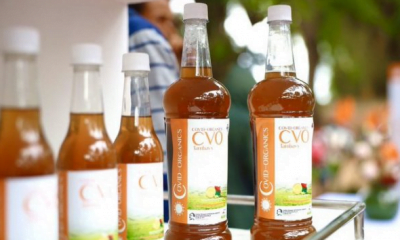Nigeria News
Madagascar Passes Bill To Castrate Child Rapists

Madagascar’s justice ministry has ignited controversy with a new bill proposing castration for child rapists, a measure that has drawn sharp criticism from Amnesty International for being “cruel, inhuman, and degrading.”
The bill, which allows for both chemical and surgical castration, was passed by the Senate on Wednesday, following approval by the National Assembly earlier in the month.
Justice Minister, Landy Mbolatiana Randriamanantenasoa defended the legislation, stating Madagascar’s sovereign right to modify its legal framework in response to the alarming rise in child rape cases, with 600 incidents involving minors recorded last year.
Previously, the minimum sentence for child rape stood at five years’ imprisonment.
Under the new legislation, perpetrators convicted of raping children under the age of 10 face surgical castration.
The bill also stipulates chemical or surgical castration for offenders against children aged 10 to 13 and chemical castration for those convicted of raping minors between 13 and 18.
Final approval from the High Constitutional Court is pending before President Andry Rajoelina can enact it into law.
Amnesty International has voiced strong opposition to the bill, with regional director Tigere Chagutah highlighting its inconsistency with both Madagascar’s constitutional protections against torture and international human rights standards.
Conversely, proponents like Jessica Lolonirina Nivoseheno, from the Women Break the Silence movement, argue that castration could serve as an effective deterrent against the island’s pervasive “rape culture.”
Critics, including Amnesty’s Madagascar adviser, Nciko wa Nciko, caution against the irreversible harm caused by castration and the potential for judicial errors that could unjustly punish innocent individuals.












